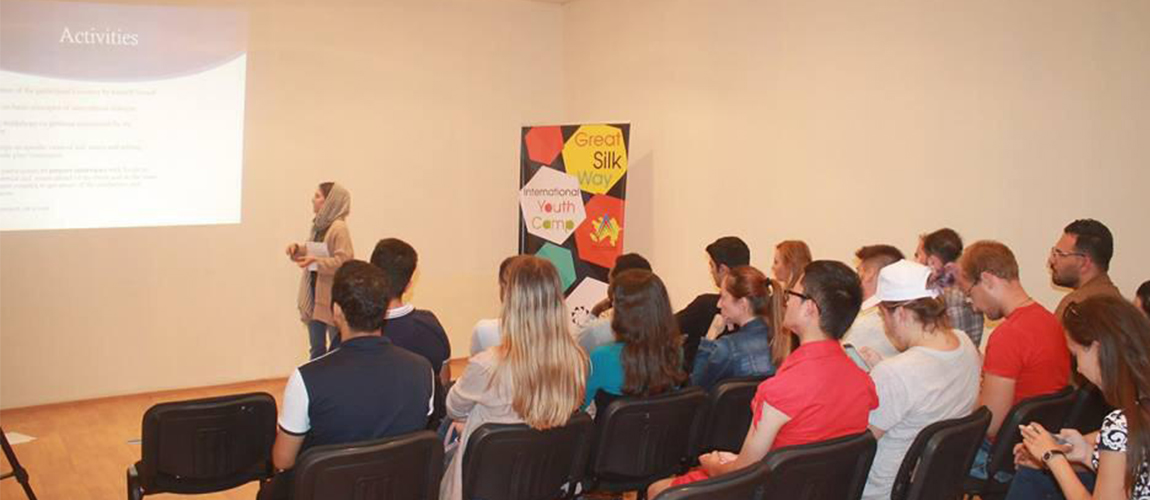Azerbaijan Republic has been hosting “Great Silk Way International Youth Camp” in recent years within the framework of aims defined by “Great Silk Way International Youth Union”. The event provides ground for intercultural dialogue, multiculturalism and tolerance by encouraging the youth to discuss the issues, raise awareness and define projects.

The most recent round of the camp was held in Baku on 21-26 September with participation of 24 people from mostly Silk Road countries including Iran, China, Azerbaijan, Georgia, Kazakhstan and Turkey. Head of Caucasus and Central Asia department of Peace Sprit Foundation also took part at the 4-day event.
Organized by Great Silk Way International Youth Union and the Ministry of Youth and Sports of the Republic of Azerbaijan, the camp was dedicated to activities, session and workshops to cover the objectives such as initiating an intercultural dialogue between youth, creating motivation and encouraging youth in the sphere of multicultural dialogue, creating common understanding of intercultural dialogue among participants, developing the skills on dialogue, setting ground for future cooperation among participants and supporting the new ideas, exploring existing concepts, practices and approaches in intercultural dialogue, non-formal education and project management.

Using a variety of methods, the first day of the camp was almost totally dedicated to knowing each other and icebreaking. Effective games and activities were designed and used to make participants feel more at home. During the following days participants received some courses on cultural theories, multiculturalism and cultural iceberg yet in innovative ways. Third night was celebrated as “intercultural night” by music, performances, cookies, nuts and souvenirs from homelands of attendees.
Role-playing was the most important activity of the third day addressing the controversial issue of refugees in the world. Taking the role of refugees, local people, international organizations and police, participants discussed the different dimensions of the crisis and hot debates were conducted between opponents and proponents of homing or refusing the refugees in a country. Some argue that a humanitarian crisis like this cannot wait for legal procedures while others were objecting the refugees as threatening to the society. However all share the idea that international organizations lack the required responsibility and have to play a more active role in settling the issue.

Designing a project and managing it was last activity of the camp to which almost the whole day was dedicated. Participants were divided to groups to work on educational training, video, visual art and role-play. Themes were intercultural dialogue, discrimination, tolerance and peace. Among all interesting projects, the “Culture without Borders” project on educational training with theme of intercultural dialogue was elected by directors to be implemented by Union’s cooperation and support.
Attendees were granted certificates at the end of the program.

